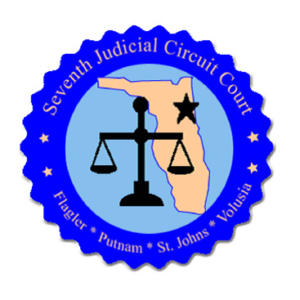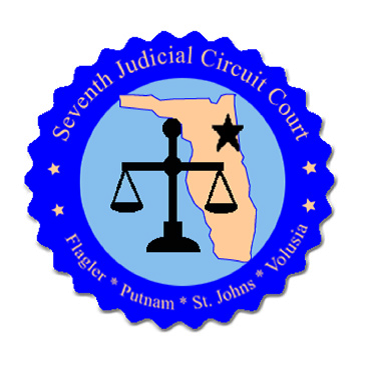 The Seventh Judicial Circuit Court of Florida recently denied a motion to dismiss a borrower’s counterclaims alleging violations of the Florida Consumer Collections Practices Act (FCCPA) against the owner of a mortgage loan, based on alleged communications by the servicer and foreclosure counsel with a debtor supposedly known to be represented by counsel and attempting to collect an allegedly invalid debt.
The Seventh Judicial Circuit Court of Florida recently denied a motion to dismiss a borrower’s counterclaims alleging violations of the Florida Consumer Collections Practices Act (FCCPA) against the owner of a mortgage loan, based on alleged communications by the servicer and foreclosure counsel with a debtor supposedly known to be represented by counsel and attempting to collect an allegedly invalid debt.
In so ruling, the Court also held:
- Merely foreclosing on a mortgage, without more, did not constitute “debt collection” under the FDCPA;
- False statements regarding a debt made to a court instead of directly to the debtor are not actionable under the FDCPA; and
- The common law litigation privilege, which provides absolute immunity from civil actions based on an attorney’s conduct during a judicial proceeding as long as the act has some relation to the proceeding, applies to FDCPA and FCCPA allegations.
A copy of the opinion is available here: Link to Opinion.
A bank sued to foreclose its mortgage. The borrower filed a counterclaim and third party complaint alleging violations of the FCCPA, breach of contract, violations of the federal Fair Debt Collections Practices Act and common law indemnity against the bank, its loan servicer and two law firms. The defendants moved to dismiss all of the borrower’s claims.
In Count I, the borrower alleged that the defendants violated FCCPA sections 559.72(9) and 559.72(18) by sending her collection letters when the note and mortgage had been paid off and knowing she was represented by an attorney.
FCCPA section 559.72(9) prohibits the collection of a debt by any person who knows the debt is not legitimate or the assertion of a legal right when such person knows the right does not exist.
FCCPA section 559.72(18) prohibits communicating with a debtor in an attempt to collect a debt when the debtor is represented by an attorney.
The Court held that the borrower’s counterclaim stated a cause of action under the FCCPA, reasoning that the letter attached to the debtor’s counterclaim was similar to the letter sent in Reese v. Ellis, Painter et al., 678 F.3d 1211 (11th Cir. 2012), in which the U.S. Court of Appeals for the Eleventh Circuit held that pursuing collection of a debt that had been paid in full and communicating with the debtor in the process, even though the debtor had counsel, violated the FDCPA. The Court also noted that the fact that Count I was a claim under the FCCPA did not matter, because decisions of federal courts interpreting the FDCPA are given great weight under the FCCPA and case law.
The Court rejected the loan owner defendant’s argument that because its servicer and counsel sent the alleged letter and the defendant itself did not send the alleged letter, the loan owner defendant was not liable because it lacked the required knowledge that the debt was not legitimate. In so ruling, the Court relied on case law holding that a collection agent’s knowledge can be imputed to the principal under traditional agency principles.
Turning to defendants’ argument that the FCCPA claim was time barred, the Court held that because the borrower had filed, on September 22, 2011, a motion seeking leave to file a second amended counterclaim asserting the FCCPA violations, and the two-year statute of limitations did not expire until May 18, 2012, the counterclaim was not time barred.
However, the Court made short shrift of the borrower’s breach of contract claim, finding that the borrower did not plead with sufficient clarity whether borrower was suing under the note and mortgage, or based on an oral agreement with the servicer’s representative, or both.
The Court held that, if the borrower were suing under the note and mortgage, the borrower failed to attach copies of the written instruments, as required by Florida Rule of Civil Procedure 1.130. In addition, the Court noted that if the borrower were suing based on a verbal agreement with the representative, such claim would likely be barred by the statute of frauds contained in section 687.0304, Florida Statutes.
As to the borrower’s allegations that the servicer and two law firms violated section 1692e(10) of the FDCPA by falsely representing to the court in the foreclosure complaint that the borrower still owed the debt, the Court concluded that it failed to state a cause of action and was barred by the litigation privilege.
The Court relied on the decision of the U.S. District Court for the Middle District of Florida in Trent v. Mortgage Elec. Reg. Sys., Inc., 618 F. Supp. 2d 1356 (M.D. Fla. 2007), which held that foreclosing on a mortgage did not constitute debt collection under the FDCPA.
The Court also relied on the decision of the U.S. Court of Appeals for the 7th Circuit in O’Rourke v. Palisades Acquisitions XVI, LLC, 635 F. 3d 938 (7th Cir. 2011), which held that false statements regarding a debt made to a court instead of directly to the debtor are not actionable under section 1692e(10) of the FDCPA.
In addition, the Court relied on the common law litigation privilege, which provides absolute immunity from civil actions based on an attorney’s conduct during a judicial proceeding as long as the act has some relation to the proceeding.
Turning to the borrower’s allegations for common law indemnity, the Court found that the borrower failed to allege that she was “vicariously, constructively, derivatively or technically liable for the wrongful acts of the party from whom [she] is seeking indemnity,” one of the required elements, and therefore that this counterclaim failed to state a cause of action. The Court dismissed this count, without prejudice, giving the borrower one last opportunity to attempt to plead this cause of action.


